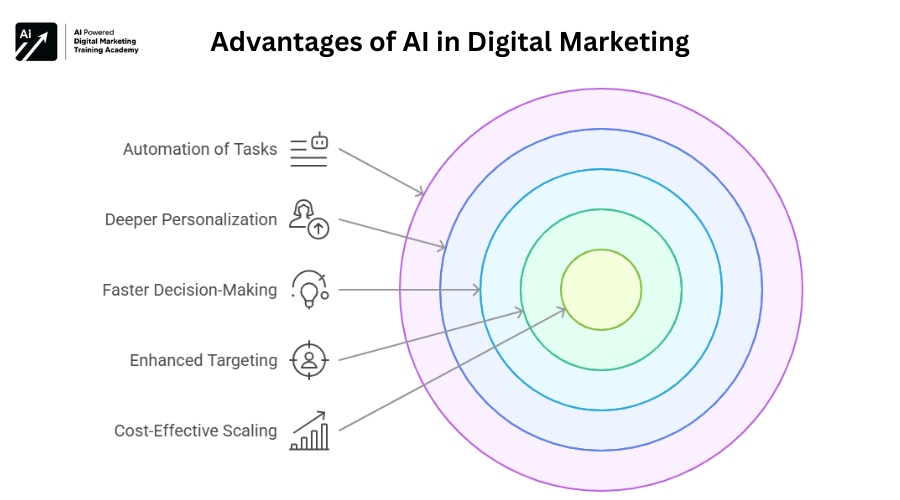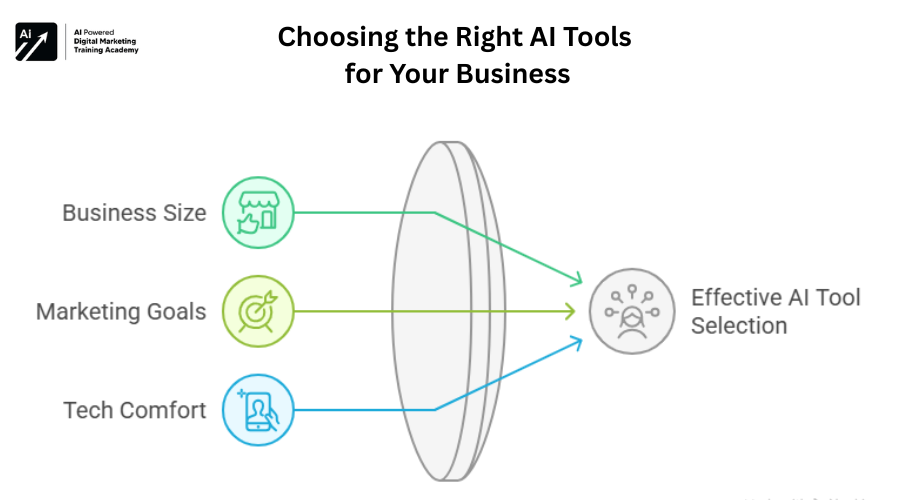There are no items in your cart
Add More
Add More
| Item Details | Price | ||
|---|---|---|---|
Discover 18 powerful AI tools for content, SEO, email, ads & analytics to boost digital marketing ROI with ease and automation.
Mon Jun 2, 2025
Artificial Intelligence (AI) is quickly transforming the way companies market. From streamlining tedious tasks to providing hyper personalized customer experiences, AI technology is revolutionizing the game. To remain competitive in the modern digital world, it's crucial to know the key tools of AI for digital marketing that can help refine your strategies, accelerate growth, and provide more effective ROI.
In this blog, we will discuss the top AI-based tools in different marketing functions content, email, SEO, customer support, advertising, and analytics and help you with selecting the best ones for your goals.
Digital marketing generates massive amounts of data on a daily basis. Human analysis and campaign optimization are not feasible without automation. This is where AI tools come into the picture.

Having the fundamental tools of AI in digital marketing is merely the initial step towards unleashing these advantages to their full potential
Content is the king, but sometimes it is challenging to create quality and engaging content at scale. AI writing software has revolutionized how marketers write blogs, ads, product descriptions, and much more.
They are essential tools for AI in digital marketing when you can't afford to compromise on human quality as you scale your content game.
AI is becoming indispensable in SEO from keyword research to content structuring and SERP analysis.
Julia uses a combination of these SEO tools to ensure that the most important tools for AI in digital marketing make your content seen and ranked.
Emails do still convert provided they're both targeted and timely. AI takes this further with automation and dynamic targeting.
For marketers with an eye on return on investment, they are essential digital marketing tools for AI that deliver higher open rates, click-throughs, and conversions.
Customer support has evolved with AI-driven chatbots and virtual assistants that offer real-time answers and 24/7 support.
Customer service software using AI is not add-ons; they're now included in the essential tools of AI in digital marketing campaigns.
Hand-manual ad optimization by channel is labor-intensive. AI tools have real-time awareness monitoring and automation in the mix.
Where paid ad performance is concerned, they're among the most essential AI marketing tools available.
To know what's working and what isn't is crucial for any marketing effort. AI analytics platforms do all the heavy work.
These analytical software applications complete the list of essential AI tools for digital marketing, allowing marketers to track success and adjust strategies wisely.

Not every AI tool is right for every marketer. Being wise about it depends on:
Start with one or two in each category and incrementally build your stack as you grow.
The world of digital marketing is evolving quicker than ever, and the driving force is AI. Staying ahead entails embracing innovation and using the tools that enable your work to become quicker, smarter, and more effective.
By leveraging these fundamental AI tools of digital marketing, you not only streamline operations, but you create more value for your business or customers. Across SEO and content to analytics and automation, AI is no longer a nice-to-have it's a must-have.

Venkat
A California-based travel writer, lover of food, oceans, and nature.